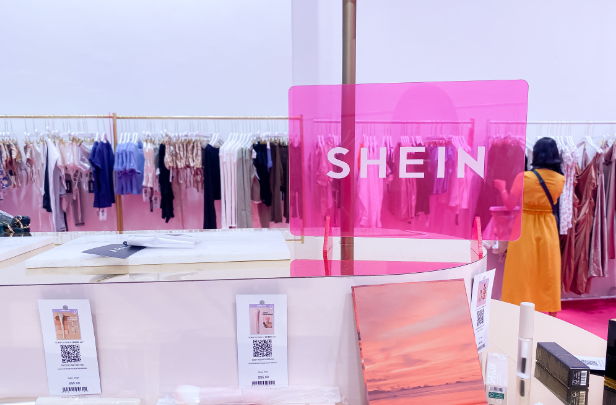In a significant move signaling its global ambitions, Shein, the Chinese-founded fast-fashion giant, has confidentially filed for an initial public offering (IPO) in the United States. The retailer, last valued at an impressive $66 billion, is eyeing a public market debut as early as 2024, aiming to expand its international footprint. However, Shein’s journey to IPO is not without hurdles, as the company grapples with controversies, regulatory scrutiny, and the need to address concerns surrounding its valuation.
While Shein’s valuation was previously pegged at $66 billion, recent reports suggest a lack of clarity on the company’s current worth. Valuation debates among Shein and its advisors have taken center stage, underscoring the complexity of determining the company’s true market value.
Shein’s meteoric rise in the fast-fashion industry has not been without its share of challenges. The company faces accusations ranging from alleged use of forced labor in its supply chain to environmental harm, labor law violations, and accusations of design theft from independent artists. The House Select Committee on the Chinese Communist Party is currently investigating Shein, and the company’s ties to Beijing have drawn attention from lawmakers, including a call from 16 Republican attorneys general urging the SEC to ensure no forced labor is involved in Shein’s supply chain before allowing its U.S. trading.
Shein’s response to these allegations has been a mix of cooperation and contradictions. Marcelo Claure, the company’s group vice chair and former SoftBank CEO, stated in an interview that Shein is engaging with lawmakers to address concerns. However, Shein has simultaneously acknowledged instances of forced labor in its supply chain while pledging corrective measures.
In an effort to bolster its image and establish credibility in the U.S., Shein recently acquired a significant stake in Sparc Group, a joint venture featuring brand management firm Authentic Brands Group and mall owner Simon Property Group. This strategic move not only provides Shein with a powerful U.S. ally but also sets the stage for collaboration with former rival Forever 21 in a co-branded clothing line. These partnerships, including pop-up events inside Forever 21 stores, could play a crucial role in Shein’s bid for legitimacy in the eyes of U.S. regulators.
Despite its efforts to address controversies, Shein’s CEO, Sky Xu, remains an enigmatic figure who avoids public appearances and interviews. This departure from the transparency embraced by many publicly traded firms raises questions about Shein’s leadership style and communication strategy.
Shein has enlisted the support of major financial institutions, with Goldman Sachs, JPMorgan, and Morgan Stanley serving as lead underwriters for the IPO. As Shein navigates the upcoming months, it is expected to refine its paperwork, address SEC queries, and eventually make its filing public when ready to proceed with the IPO.
Shein’s journey to go public in the U.S. reflects its ambition to cement its position as a global fashion powerhouse. However, the company faces a formidable task in overcoming controversies, regulatory scrutiny, and the need for transparent communication. As Shein prepares to enter the public markets, the fashion giant must not only address concerns but also build trust with regulators and investors to ensure a successful and sustainable IPO.
(Source: CNBC | Reuters | NYT | MarketWatch)









